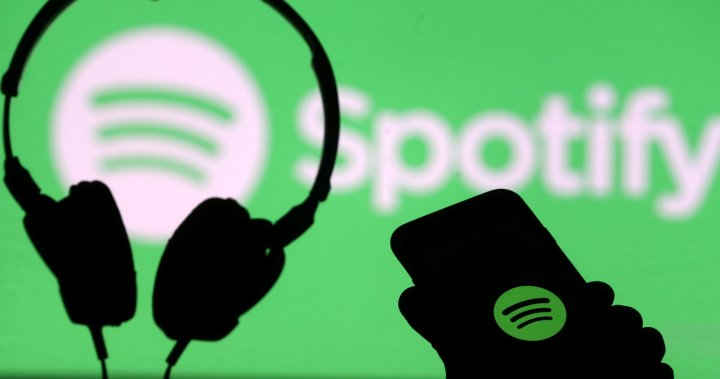The future of music is streaming. It’s just too convenient for fans and too profitable for record labels to ever think of it going away.
The ability to frictionlessly access millions of songs from the whole of human history — the fabled “celestial jukebox” predicted years ago — has been a reality for a generation. And with labels deriving over 65 per cent of their revenues from streams, they love it.
COMMENTARY: (March 1, 2020) Music streaming has become a monster — and there’s no going back, Alan Cross says
Just last week, Sony had to boost its annual music revenue forecast by $500 million because so many people are streaming music during the pandemic. Universal, the biggest of the three majors, is earning around $20 million a day from streaming. Add in Warner and you have the majors raking in more than $1 million per hour. (All dollars U.S.)
The problem, however, is that little of this is trickling down to the artist. And with touring completely cut off by the pandemic, creators need all the revenue they can find. Unfortunately, little of it coming from streaming.
This is why there’s a new petition in the U.S. called Justice at Spotify, which is seeking to boost the minimum payout per stream to at least one cent. That represents a significant increase from the current rate, which averages to around $0.004 per listen — that’s 0.4 cents or four-tenths of a penny. At this rate, a musician would need around 250 streams to earn just a dollar, or about 650,000 streams a month to make the equivalent of $15 an hour. An increase to one cent per stream would — well, do the math.
Other platforms pay more than Spotify (Napster, Tidal, Apple Music) and some pay less (Amazon, Pandora, YouTube). But even if you have your song on every single streaming platform (which you definitely should in order to maximize exposure), the payouts are tiny compared to what you might have received when fans bought CDs, records, and tapes. But Spotify is by far the biggest of the streaming companies, so most of the focus is on that one.

Would it be nice if Spotify paid more to artists? Absolutely. But reality is … complicated.
All the streaming services license music from record labels, copyright holders, and publishers with rates set at a statutory level by local copyright boards. These fees are hammered out through long, protracted negotiations. Given that no streaming service can exist without these licences to play music, they always start talks at a disadvantage. The rightsholders have all the cards.
This means that Spotify isn’t just being mean or miserly when it comes to payouts. The company’s licensing agreements are set by these negotiations and statutory edicts with entities that you’d think would have the artists’ best interests in mind.
But before a cheque gets written to the artists, the labels and rightsholders take their cut off the top. What’s left — and that’s determined in a very opaque way — is passed on to the artist. Complicating things further is that the major labels have equity interests in Spotify. They all own a piece of the company. You would think that they’d use their ownership leverage to help their artists, right? Apparently not. Again, the arrangements are very opaque.
COMMENTARY: Companies are buying up the rights to thousands of songs, and Alan Cross can tell you why
On the other side of the ledger, all streamers are handicapped by master agreements that make it very hard for them to be profitable. The more users/subscribers they attract, the more their fixed costs rise in lockstep with new revenue. Margins cannot increase through synergies and efficiencies, so the streamers are forced to continually operate at a loss.
This explains why Spotify got into the podcasting game. If Spotify can satisfy, say, 20 per cent of its users with podcasts — audio on which it pays no royalties — then it can reduce the amount of money it has to pay out for music by 20 per cent, inching the company closer to turning a profit. This tends to annoy artists even more because listening that might have otherwise gone to their music (and thus earning them money) goes to content that Spotify gets for free.
Another issue is that people continue to equate streams with sales. When you buy a CD, a digital download, or a vinyl record, you’re paying for the right to listen to that music an infinite number of times without incurring any future costs. With a stream, you’re paying per listen. Big difference.
Streaming is best compared to radio airplay. Let’s say your song is played on a major radio station just once. Hypothetically, we’ll say that one play is heard simultaneously by 100,000 people. For that, you earn an airplay royalty amounting to a fraction of a cent. If your song is a hit, you end up with more airplay and thus bigger performing rights cheques.
It’s the same with streaming a song, except that instead of 100,000 people hearing the song all at once, it’s heard person by person. For that, you get a streaming royalty — amounting to a fraction of a cent.

The issue is that while streaming is killing off high-margin earnings from the sale of physical product, it hasn’t replaced those revenues. Real-world earnings on recorded material have dropped compared to the pre-digital days. Live performances and licensing of music to commercials, movies, and TV are really all you have in addition to whatever you can get out of streaming.
The thinking has become that something needs to be done on the streaming side to keep artists from slipping into poverty. But given the realities of how streaming works on a business level …
Like I said, it’s all very complicated. But at some point, something’s gotta give.
—
Alan Cross is a broadcaster with Q107 and 102.1 the Edge and a commentator for Global News.
Subscribe to Alan’s Ongoing History of New Music Podcast now on Apple Podcast or Google Play


